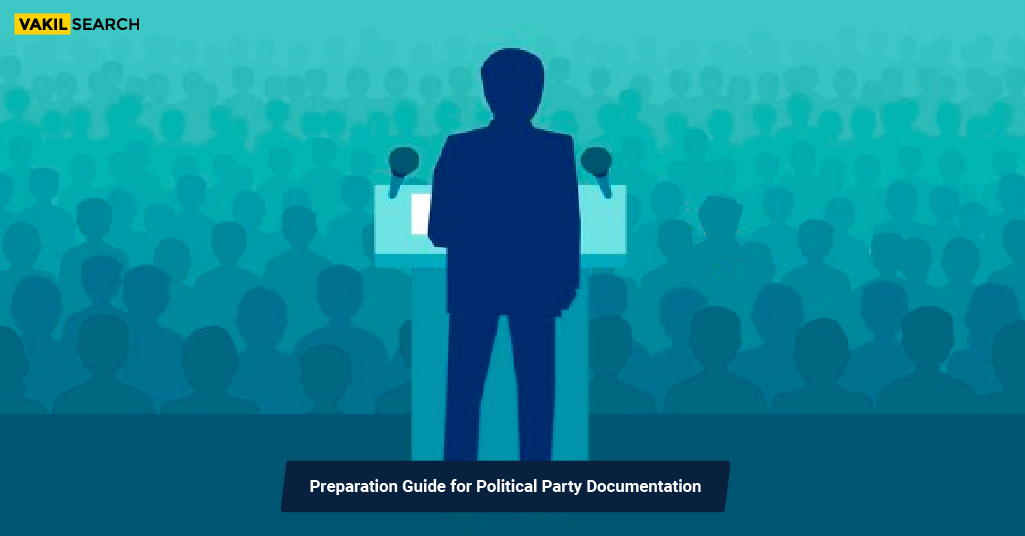Explore our comprehensive guide to navigating Indian politics successfully. From crafting a robust constitution to crisis management, empower your political journey.
Introduction
In politics, having your ducks in a row is crucial. Imagine political party documentation as your roadmap through the labyrinth of governance, campaigns, and internal workings. This guide will break down the critical elements of a solid political party documentation system, helping you streamline operations and boost efficiency in plain, everyday language.
Laying the Foundation: Your Party’s Constitution and Bylaws
Let’s start with the basics – the constitution and bylaws. Think of them as the rulebook and structure of your political party. Your constitution outlines what your party stands for, its structure, and how decisions are made. On the other hand, bylaws are the nitty-gritty details of how things operate daily. Keep them clear, updated, and aligned with your party’s values.
Members Matter: Building a People Database
Your party is nothing without its members, so keeping tabs on them is key. Create a simple membership form to gather essential info – names, contact details, and any unique skills your members bring. Use a secure digital system to manage this information and keep it current. Think of this as your membership Rolodex – the more organised, the better.
Show Me the Money: Transparent Finances for Trust
Money talks, especially in politics. Lay down some financial ground rules in a policy – how you budget, fundraise, and track expenses. Keep detailed records of every dollar in and out, and make those records accessible to your members. Transparency builds trust, and trust is the currency of politics.
Talk the Talk: Clear Communication Rules
Politics is all about talking, but you need to talk smart. Set up clear rules for how your party communicates, inside and out. This includes what you say officially, how you release statements, and your strategy on social media. Think of it as your party’s language guide – everyone should be on the same page when talking the talk.
Winning Hearts: A Playbook for Campaign Success
Elections are the Super Bowl of politics, and you need a playbook. Lay out your game plan – how to canvas, advertise, and connect with voters. Document who’s doing what, from campaign staff to volunteers. It’s like your party’s game strategy – always subject to review and adjustment based on how the game is going.
Party Time: Smooth Event Planning
Parties love to throw parties. From small fundraisers to big conventions, events are your chance to shine. Develop a guide for event planning that covers everything from budgeting to promotion. Imagine it as your party’s event GPS – a step-by-step guide to ensure everything runs like clockwork.
Expect the Unexpected: Crisis Management 101
Politics is a rollercoaster, and sometimes things go sideways. Prepare for the worst with a crisis management plan. Lay out what to do when things get tough – from internal squabbles to external controversies. It’s your party’s emergency kit – keep it updated and ready for anything.
Essential Documents:
Formation Documents:
- Memorandum of Association (MoA): Outlines the party’s name, objectives, registered office address, and membership rules.
- Rules and Regulations: Defines the party’s structure, functioning, decision-making process, and disciplinary measures.
- List of Founding Members: Includes the names and addresses of all initial members.
- Election Commission Registration Certificate: Confirms the party’s official recognition by the Election Commission of India (ECI).
Membership Documents:
- Membership Application Form: Captures individual details, contact information, and commitment to party ideology.
- Membership Database: Maintains a comprehensive record of all members, including their status, contributions, and activities.
- Membership Cards: Issued to identify and verify members.
Financial Documents:
- Income and Expenditure Statements: Provide a detailed breakdown of the party’s financial activities, including sources of income (donations, membership fees, etc.) and expenditures (campaign costs, administrative expenses, etc.).
- Donation Records: Maintain a clear record of all donations received, including the donor’s name, address, amount, and date.
- Expenditure Receipts: Keep receipts for all party-related expenses.
- Audited Financial Statements: Conducted annually to ensure financial transparency and accountability.
Meeting Minutes:
- Record minutes of all party meetings, including the date, attendees, agenda, key discussions, decisions made, and action items.
Communication Documents:
- Maintain records of all official party communications, including press releases, speeches, letters, and emails.
Election Documents:
- Candidate nomination forms, campaign materials, election results, and post-election reports.
Documentation Process:
Standardisation:
- Develop standardised templates for all key documents.
- Ensure clarity and consistency in formatting and content.
Digitisation:
- Scan and store all documents electronically for easy access and retrieval.
- Utilise cloud storage solutions for enhanced security and accessibility.
Data Management:
- Implement a robust data management system to track and organise all documents effectively.
- Regularly update and back up data to prevent loss or corruption.
Archiving:
- Establish an archiving system for preserving historical documents in an organised and accessible manner.
- Consider collaborating with historical institutions for long-term preservation.
Compliance:
- Ensure all documentation adheres to legal and regulatory requirements of the ECI and other relevant authorities.
- Maintain transparency and accountability through regular audits and disclosures.
Conclusion:
Creating and maintaining political party documentation is like building a sturdy ship to navigate stormy political seas. With clear rules for governance, membership, finances, communication, campaigns, events, and crisis management, your party is better equipped to weather the challenges of the political landscape. Keep it simple, keep it updated, and you’ll find yourself confidently sailing toward your party’s goals.
At Vakilsearch, we understand the critical role meticulous documentation plays in the success of political parties in India. Our platform offers tailored services to support your party’s legal and operational needs. Here’s how we can assist you based on the insights provided in the blog:
Legal Documentation Services:
Expert assistance in drafting and reviewing essential legal documents, including Memorandum of Association (MoA) and Rules and Regulations for seamless party formation.
Registration Services:
Streamlined support for the registration process with the Election Commission of India (ECI), ensuring your party gains official recognition with compliance with legal requirements.
Membership Documentation Assistance:
Customised guidance in creating standardised membership application forms, managing membership databases, and issuing membership cards for efficient party membership processes.
Financial Compliance Services:
Dedicated services for preparing Income and Expenditure Statements, maintaining transparent donation records, managing expenditure receipts, and conducting audits to ensure financial compliance.
Meeting Minutes and Communication Documentation:
Reliable support in recording accurate meeting minutes, maintaining communication records, and ensuring your party aligns with the highest documentation standards.
Election Documentation Support:
Tailored assistance for managing candidate nomination forms, preparing election-related documents, and handling post-election documentation to streamline your electoral processes.
Standardisation and Digitization Services:
Innovative solutions for developing standardised document templates, digitising records, and implementing efficient data management systems for your party’s ease of use.
Archiving and Compliance Services:
Strategic guidance on establishing robust archiving systems for historical documents and ensuring ongoing compliance with legal and regulatory requirements for a seamless party management experience.
FAQs
What is the importance of political party documentation?
Political party documentation is the backbone for effective governance, transparent financial management, and successful election campaigns. It provides a structured framework for party operations, ensuring accountability and legal compliance.
What documents are fundamental for a political party in India?
In the Indian context, the constitution and bylaws of a political party are foundational documents. These outline the party's mission, structure, and operational procedures. Additionally, maintaining an accurate membership database and transparent financial records is crucial.
How often should a political party update its constitution and bylaws?
Regular reviews and updates of the constitution and bylaws are recommended, especially in light of changing political landscapes and evolving party goals. It ensures that the party's foundational documents remain relevant and aligned with its values.
Are there legal requirements for maintaining financial transparency in Indian political parties?
Yes, Indian political parties are subject to financial transparency laws. They are required to maintain detailed records of financial transactions, adhere to reporting requirements, and comply with guidelines set by the Election Commission to ensure accountability.
What role does a membership database play in Indian political parties?
A membership database is essential for managing party members effectively. In India, it helps parties comply with legal requirements, track member demographics, and ensure that communications and party activities are streamlined and inclusive.
How can political parties in India ensure effective communication?
Clear communication protocols, including official statements, press releases, and social media use guidelines, are essential. Parties must consider India's diverse linguistic and cultural landscape to effectively connect with their audience.
What legal considerations should be kept in mind during election campaigns in India?
Indian political parties must adhere to stringent election laws set by the Election Commission. Compliance with spending limits, ethical campaign practices, and accurate documentation of campaign activities are crucial to avoid legal repercussions.
How can political parties plan events in compliance with Indian regulations?
Event planning should consider local regulations and cultural nuances. Permits, security measures, and adherence to noise and crowd control regulations are essential aspects. Political parties should also be aware of any restrictions imposed by local authorities.
Why is crisis management important for political parties in India?
The dynamic nature of Indian politics makes crises inevitable. A well-documented crisis management plan helps parties respond swiftly and effectively to internal disputes, external controversies, or unexpected events, safeguarding their reputation and credibility.
How can political parties ensure inclusivity in their documentation processes?
Political parties can promote inclusivity by designing membership forms that capture diverse demographic information. Additionally, communication protocols should consider linguistic diversity and party activities should be accessible to a broad population.










